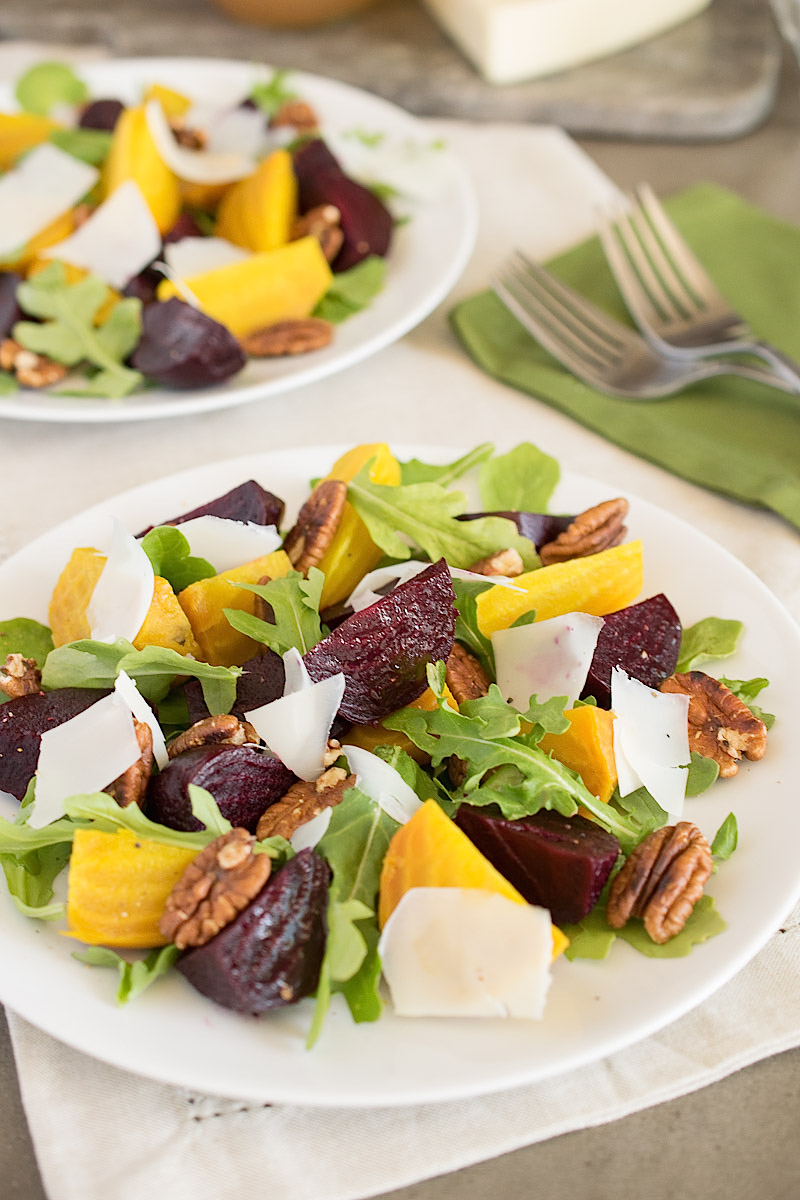Healthy eating is an important part of a healthy lifestyle. It will help keep you looking good and feeling great!
Follow these simple guidelines to help you eat well.
- Go for Whole Grains
Make at least half your grain choices whole grains. Examples of whole grains are whole grain wheat, whole oats or oatmeal, pot barley and bulgur. Whole grains are higher in vitamins, minerals and phytonutrients (natural plant compounds) than refined grains. Research shows that a diet rich in whole grains is heart healthy.
Quick Tips:
- Start your day with a bowl of whole grain cereal
- Make sandwiches with whole grain bread or rolls
- Add barley, lentils, kidney beans or brown rice to soups and stews
- Substitute whole-wheat flour for all or part of the white flour when baking
- Choose whole-grain crackers
- Use whole grain pasta
- Load Up on Vegetables and Fruit
Vegetables and fruit are packed with nutrients and fiber, so enjoy a wide variety of them. Try to include at least one dark green and one orange veggie daily.
Quick Tips:
- Try a new vegetable or fruit each week
- Sprinkle some berries over whole grain cereal at breakfast
- Pack a couple pieces of fruit and some raw veggies with your lunch
- Start dinner with a salad of dark greens such as spinach
- Fill half your plate with vegetables at dinner
- Add a handful of spinach or kale to a fruit smoothie
- Make Your Day with Milk Products
Milk products are packed with protein, calcium and B vitamins. And they’re delicious! Enjoy 500mL (2 cups) of milk or fortified soy beverage every day for bone-boosting vitamin D.
Quick Tips:
- Add milk to soups, casseroles and other home-prepared dishes
- Add defrosted frozen raspberries to plain low fat Greek yogurt for a tasty breakfast
- Bring a few small cheese cubes along with whole grain crackers to work for a quick snack
- Have a frothy latte instead of a cup of coffee for your morning break
- Enjoy a small bowl of whole grain cereal with milk as an after dinner snack
- Go Lean & Alternative!
Meat and meat alternatives are a good source of protein, iron, zinc and other nutrients. Make lean choices and prepare them with little or no added fat. Enjoy alternatives like legumes (kidney beans, chick peas and lentils) and tofu often.
Quick Tips:
- Bake, roast or poach meat, fish and poultry
- Enjoy at least two servings a week of fatty fish like salmon, trout and mackerel
- Try meatless meals such as lentils with rice, omelets, or tofu burgers
- Keep boiled eggs in the fridge for handy, quick snacks
- Sprinkle seeds on stir-fry’s and salads or enjoy a handful of nuts for a protein-filled snack
- Choose Healthier Fats
Fats and oils add a lot of flavour to food, and they help us absorb some nutrients. But diets higher in unhealthy fats are also linked to health risks such heart disease. Enjoy a small amount – 30 to 45 mL (2 to 3 Tbsp.) – of healthier unsaturated fat each day. Limit saturated and trans fats.
Healthier unsaturated fats come from foods such as avocados, nuts and seeds as well as oils such as olive, canola, flaxseed or nuts oils.
Quick Tips
- Reduce the oil and add a splash of flavoured vinegar or fresh lemon juice to salad dressings.
- Try a little mashed avocado on sandwiches instead of butter or mayonnaise.
- Use herbs and spices to season your food without fat.
- Use small amounts of vegetable oils, such as canola or olive oil instead of butter for stir-frying or sautéing.
- Nibble on a small handful of almonds or walnuts with a piece of fruit for a simple snack
March 22, 2020 – International Water Day!
Keeping hydrated is crucial for health and well-being, but many people do not consume enough fluids each day. Around 60% of the body is made up of water, and around 71% of the planet’s surface is covered by water. Perhaps it is the ubiquitous nature of water that means drinking enough each day is not at the top of many people’s lists of priorities.
Fast facts on drinking water
- Adult humans are 60% water, and our blood is 90% water.
- There is no universally agreed quantity of water that must be consumed daily.
- Water is essential for the kidneys and other bodily functions.
- When dehydrated, the skin can become more vulnerable to skin disorders and wrinkling.
- Drinking water instead of soda can help with weight loss.
Fifteen benefits of drinking water
Possible benefits of drinking water range from keeping the kidneys healthy to losing weight.
To function properly, all the cells and organs of the body need water.
Here are some reasons our body needs water:
- It lubricates the joints
Cartilage, found in joints and the disks of the spine, contains around 80 percent water. Long-term dehydration can reduce the joints’ shock-absorbing ability, leading to joint pain. - It forms saliva and mucus
Saliva helps us digest our food and keeps the mouth, nose, and eyes moist. This prevents friction and damage. Drinking water also keeps the mouth clean. Consumed instead of sweetened beverages, it can also reduce tooth decay. - It delivers oxygen throughout the body
Blood is more than 90 percent water, and blood carries oxygen to different parts of the body. - It boosts skin health and beauty
With dehydration, the skin can become more vulnerable to skin disorders and premature wrinkling. - It cushions the brain, spinal cord, and other sensitive tissues
Dehydration can affect brain structure and function. It is also involved in the production of hormones and neurotransmitters. Prolonged dehydration can lead to problems with thinking and reasoning. - It regulates body temperature
Water that is stored in the middle layers of the skin comes to the skin’s surface as sweat when the body heats up. As it evaporates, it cools the body. In sport.
Some scientists have suggested that when there is too little water in the body, heat storage increases and the individual is less able to tolerate heat strain.
Having a lot of water in the body may reduce physical strain if heat stress occurs during exercise. However, more research is needed into these effects.
7, The digestive system depends on it
The bowel needs water to work properly. Dehydration can lead to digestive problems, constipation, and an overly acidic stomach. This increases the risk of heartburn and stomach ulcers.
- It flushes body waste
Water is needed in the processes of sweating and removal of urine and feces. - It helps maintain blood pressure
A lack of water can cause blood to become thicker, increasing blood pressure. - The airways need it
When dehydrated, airways are restricted by the body in an effort to minimize water loss. This can make asthma and allergies worse. - It makes minerals and nutrients accessible
These dissolve in water, which makes it possible for them to reach different parts of the body. - It prevents kidney damage
The kidneys regulate fluid in the body. Insufficient water can lead to kidney stones and other problems. - It boosts performance during exercise
Dehydration during exercise may hinder performance.Some scientists have proposed that consuming more water might enhance performance during strenuous activity.
More research is needed to confirm this, but one review found that dehydration reduces performance in activities lasting longer than 30 minutes.
- Weight loss
Water may also help with weight loss, if it is consumed instead of sweetened juices and sodas. “Preloading” with water before meals can help prevent overeating by creating a sense of fullness. - It reduces the chance of a hangover
When partying, unsweetened soda water with ice and lemon alternated with alcoholic drinks can help prevent over consumption of alcohol.
Healthy Transformations
Roasted Beet Salad

INGREDIENTS
- 2 pounds red and gold beets, trimmed of the greens, washed and dried
- 1 tablespoon olive oil
- Salt and pepper
- Juice of 2 lemons
- 1 teaspoon red wine vinegar
- 1/4 teaspoon honey
- 1/2 cup light olive oil
- 1/2 teaspoon salt
- Small pinch freshly ground black pepper
- 3 ounces pecan halves, unsalted
- 1 cup arugula
- 3 ounces Asiago cheese, shaved with potato peeler
INSTRUCTIONS
- Preheat oven to 375 degrees F.
- Take a large piece of foil and place beets in the center.
- Drizzle with the tablespoon of olive oil, salt and pepper.
- Wrap up well and tight in the foil.
- Roast for 45 minutes until tender. They should have no resistance when a knife is inserted.
- Allow the beets to cool in the open foil packets.
- To a small mixing bowl, add the lemon juice, red wine vinegar and honey or agave.
- Drizzle in the olive oil while whisking until emulsified.
- Add salt and pepper to taste, set aside.
- Add the pecans to a small sauté pan over medium low heat.
- Toast until you start to smell the pecans, turning often until toasted. Set aside and allow to cool.
- They should peel easily, by using a paper towel to ‘wipe’ the skin off.
- Slice into wedges.
- Arrange on a plate, sprinkle with arugula, pecans and slices of cheese.
- Drizzle with the dressing and freshly ground pepper.









